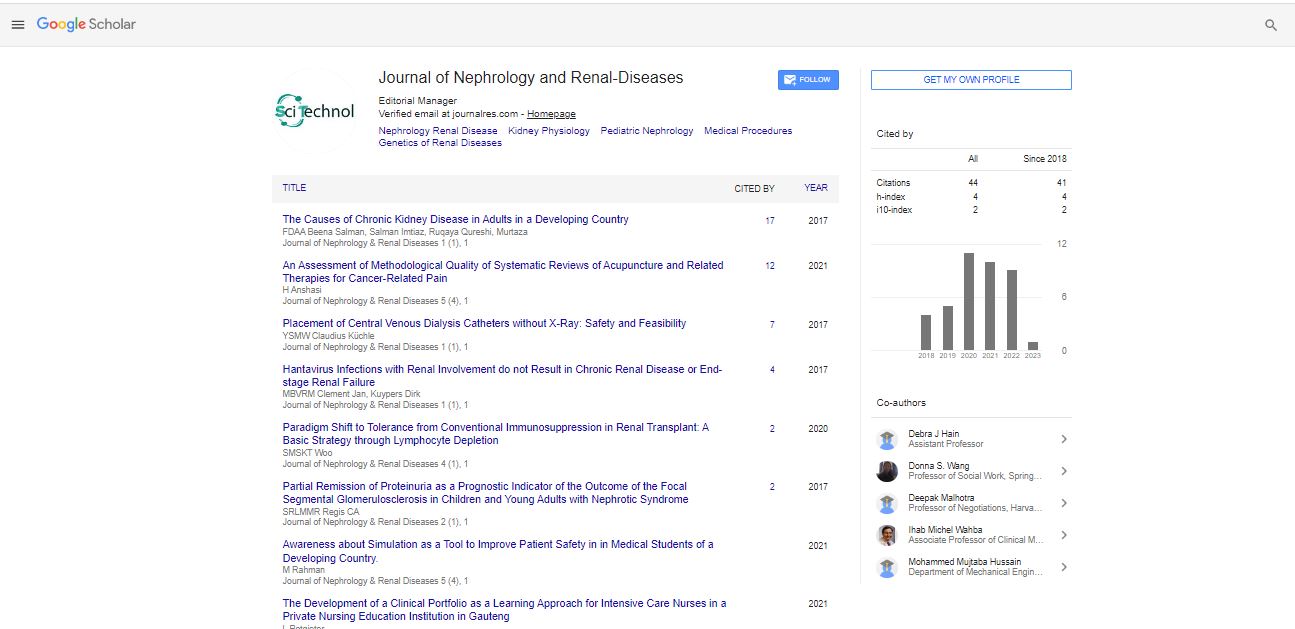Exploring the effect of corticosteroids on drug-induced acute interstitial nephritis
A Swalay Fedally
Ministry of Health & Quality of Life, Mauritius
: J Nephrol Ren Dis
Abstract
Introduction: Acute Interstitial Nephritis (AIN) is a form of nephritis that affects the renal interstitium, which is an important cause of reversible Acute Kidney Injury (AKI). Drug induced AIN is the commonest aetiology and accounts up to 80% of the causes. AIN is always of sudden onset and fast decline in renal function, usually presenting with an acute rise in Blood Urea Nitrogen (BUN) and Creatinine (Cr) values. Renal biopsy provides the most definitive means of diagnosis. Because of its role as anti-inflammatory, inhibition of immune, anti-allergy and prevention of fibrosis, corticosteroids are widely used as a treatment for AIN. Methods: A retrospective study of 98 patients with AIN mediated by drugs was analysed. The patients are divided into two groups (treated group and control group) with 49 cases each. According to age, each group are divided into three age-groups (18-30, 30-60 and >60 years) denominated A, B and C respectively. After admission, the two groups’ patients were treated with diuretics, nutrition support therapy, correcting the hydro-electrolytic disorder or maintaining the acid-base balance and other symptomatic treatment. Besides these therapies, patients in the treated group received steroids. Data on the first day of admission, the first, second, 12th and 24th week were collected. Results: Improvement in Urea (BUN) and Creatinine (Cr) level as well as other signs and symptoms in treated group was quicker than that in the control group. Out of the 49 patients in the treated group, only two progressed to ESRF after 24 weeks compared to 6 patients in the control group for the same time. The prognosis of old AKI patients (with age >60 years old) in both treated and control group was poorer than that of the young and mid-aged patients. However, steroid treatment still took effect for the old patients. Conclusion: Most of the AIN patients treated without steroids may still recover to normal. However, steroids help renal function recover quickly and the treatment may benefit to maintain a good short-term and long-term prognosis for AIN patients.
Biography
A Swalay Fedally is a Nephrologist at Ministry of Health & Quality of Life, Mauritius. He was graduated as MD in Nephrology from University of Chongqing, China. His interest is in interventional nephrology.
E-mail: swalayf@yahoo.com
 Spanish
Spanish  Chinese
Chinese  Russian
Russian  German
German  French
French  Japanese
Japanese  Portuguese
Portuguese  Hindi
Hindi 
